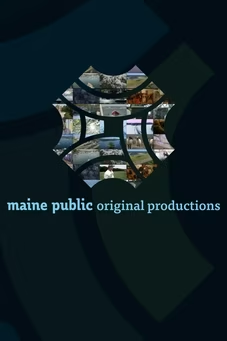Assignment Maine
A Franco-American Revival
Special | 4m 40sVideo has Closed Captions
The revival of Franco-American culture in Lewiston
Franco-American culture is experiencing a revival in Lewiston, Maine. This Assignment: Maine segment was produced by Maine Public's 2022 Jim Dowe Public Media Interns Emi Verhar and Isabelle Lockhart.
Problems playing video? | Closed Captioning Feedback
Problems playing video? | Closed Captioning Feedback
Assignment Maine is a local public television program presented by Maine PBS
Assignment: Maine on Maine Public is brought to you by Maine Public members like you.
Assignment Maine
A Franco-American Revival
Special | 4m 40sVideo has Closed Captions
Franco-American culture is experiencing a revival in Lewiston, Maine. This Assignment: Maine segment was produced by Maine Public's 2022 Jim Dowe Public Media Interns Emi Verhar and Isabelle Lockhart.
Problems playing video? | Closed Captioning Feedback
How to Watch Assignment Maine
Assignment Maine is available to stream on pbs.org and the free PBS App, available on iPhone, Apple TV, Android TV, Android smartphones, Amazon Fire TV, Amazon Fire Tablet, Roku, Samsung Smart TV, and Vizio.
(upbeat music) - We are at the entrance to Lewiston's river-front.
It's also home to many of the textile mills that were built in the 1850s.
Well, at that time a lot of Canadians were leaving their homes, because they wanted to come and work in the Mills.
When the train came to Lewiston right from Quebec the train station was only two blocks away, so they could walk to work.
Across the street from the church is Little Canada, all along Lincoln street was also part of Little Canada.
So the homes were close to where they were gonna work.
The church was built for these Franco-Canadians that were coming down here to Lewiston.
- My name is Lionel Meservier, I'm known as Nell.
I was born and raised in Lewiston, I was born in this parish.
This was my parish and this is where I went to school.
Growing up, everybody in the neighborhood was French, and the majority of the men in the neighborhood worked at the Continental Mill.
Everything we wanted was in the neighborhood, we rarely ever left.
(upbeat music) - [Janet] Like Nell said earlier, most of the neighbors spoke French.
We spoke French outside, but eventually we, you know TV, everything on TV was in english and the radio and so we eventually transitioned to speaking english.
- [Nell] Oh, I've lost a lot of French, I don't use it often enough.
My wife is French, she speaks French, she understands French, but we don't use it at home.
Both my girls, my two children don't speak French.
So I've lost it by not using it and I feel bad about that.
- [Janet] I basically stopped speaking French, for a long time.
I could hear French spoken here and there in the lowest and urban area when I went out.
But none of my friends spoke French here and so I just basically stopped.
- [Nell] There's not a lot of opportunity to speak only French, until this place started 22 years ago and I've been here since.
- We've had a wave of African immigrants here, and the people from the Congo and Rwanda, they all speak a beautiful French and so I was volunteering here and a lot of them worked in the kitchen, and I could hear them speaking French and I thought, wow, I know what they're saying.
You know, I could speak French and so I just got re-interested and then I met other people that spoke French here, and we started a French club called (speaks in French).
- [Denise] It's already jumped up from seven members the first day to 25 members by the third day.
- [Nell] They've started a French club over here, to reacquaint yourself with the French language and I just joined that today.
So French is of real big important part of my culture.
- [Denise] The pandemic put an end to a lot of the programs that we had.
We're just starting back with the French club.
So a lot of the people who are coming to events like we had today, which was (speaks French).
Which translates to, the gathering.
They come to socialize, they are mostly Franco-Americans.
So their parents or grandparents, were the original immigrants that came here, for which Little Canada was built.
(violin music playing) - We've all forgotten a lot of the French but it's all coming back because we all, you know once you start using it again, it does come back.
It's like riding a bike.
(laughs) - I would hope that maybe I could influence somebody else to start speaking French again and start using the language.
(violin music playing) (upbeat music)
Support for PBS provided by:
Assignment Maine is a local public television program presented by Maine PBS
Assignment: Maine on Maine Public is brought to you by Maine Public members like you.














